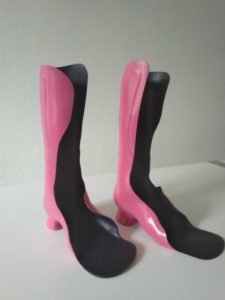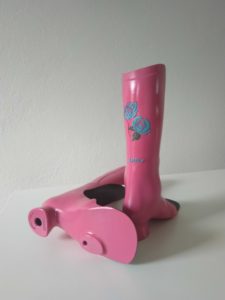Getting the right orthoses (an aid used to support or assist movement in part of the body) can have both immediate and life-long positive impacts for children with developmental disabilities like Cerebral Palsy.
However, of the 100 million children globally who need orthotics, only one in ten get access to the required device. Working in partnership with Northcott and AbilityMade, NI participated in a ground-breaking project that is redefining how the disability sector in Australia approaches the prescription and assessment of Ankle Foot Orthoses (AFOs) for children with disability.
The Fabricating the Future of Orthoses project was funded under the NSW Government’s Disability Sector Scale-up (DSSU) Program between 2018 and 2020. It brought the new technologies of photogrammetry, 3D modelling and 3D printing to the field of Prosthetics and Orthoses (P&O).


The technologies used in the project eliminated the need for traditional plaster casting, which many children found unsettling. By removing the need for traditional orthotics manufacturing processes, the project also\ offered a more efficient and environmentally friendly approach – and a more attractive business proposition for P&O providers. The project also sought to explore how children in remote areas could be prescribed, fitted and supplied with orthotics – in their own communities.
Our hope is the project will lead to the streamlined supply of customised AFOs for more children like Emily, a determined five-year-old with a lust for life, who lives with Cerebral Palsy. As part of the project, the DSSU project team worked with Emily’s local Orthotist – Access Orthotics, Emily’s family and Emily’s physiotherapist to co-design a highly customised pair of AFOs.
She now has a bespoke set of orthoses that match her unique postural and mobility requirements. She even got to choose the colour: PINK.
Emily’s mother says the new AFOs have made an immediate and profound difference.
“They are brilliant. Her stride and foot placement are much more consistent when turning and her feet are better positioned. They also look fabulous. I can’t wait to see her walking independently.”
When we followed up with Emily two weeks after receiving her new AFOs, her mother said she was now walking up to 360 steps independently for the first time.
Outcomes like Emily’s inspire us to continue working towards our goal to provide all children with disability access to custom-made, 3D printed orthoses – regardless of where they live.
